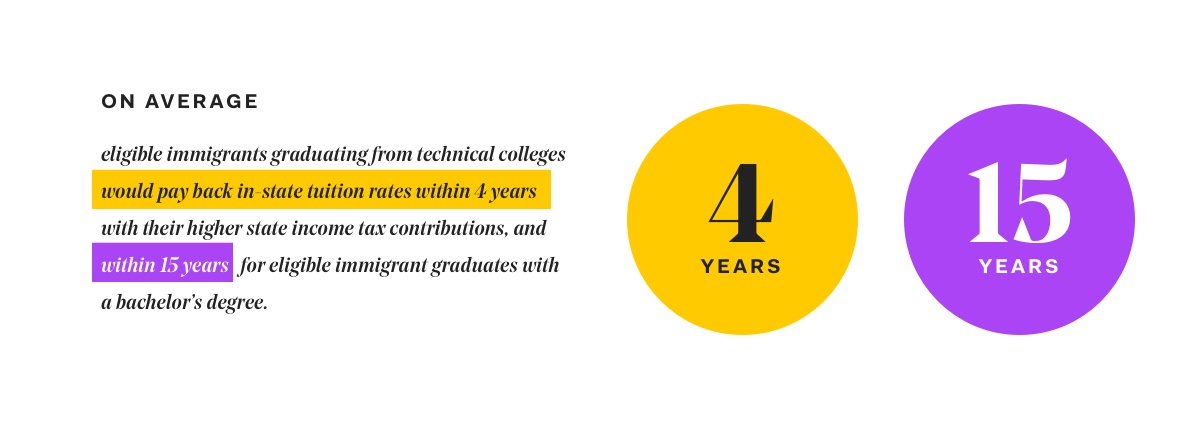At least 25 states have extended some kind of tuition relief to undocumented students who meet certain residency requirements such as Utah, Kansas, Florida, Kentucky, Nebraska, and Oklahoma, but Georgia is lagging behind. The high cost of out-of-state tuition is a major factor discouraging Georgia Dreamers from attending college, hurting the state’s economic competitiveness.
Without offering in-state tuition for immigrants legally to work in Georgia, many may leave the state, establish residency in another state where in-state tuition might be available to them, and join the workforce in that state, representing a long-term loss to Georgia’s economy and communities. Lawful immigrants with access to work authorization who are in school or have finished high school currently contribute $211 million in spending power to Georgia’s economy each year, and nearly $25 million in state and local taxes.
A bill offering limited in-state tuition has been introduced in Georgia’s Legislative Assembly, which would offer in-state tuition to immigrants who can legally work and have been vetted during previous administrations, including Deferred Action for Childhood Arrivals (DACA) recipients), Temporary Protected Status (TPS) holders, people seeking asylum, paroled individuals, and others seeking immigration relief for young adults under 30 years old, living in Georgia since 2020, and who have graduated from a Georgia high school or with a Georgia GED.
Tuition equity is truly an investment for all Georgians: it helps more young people invest in their careers and futures, and makes Georgia a stronger state with their education and training, paid back to the state when graduates stay, work, and pay taxes.



